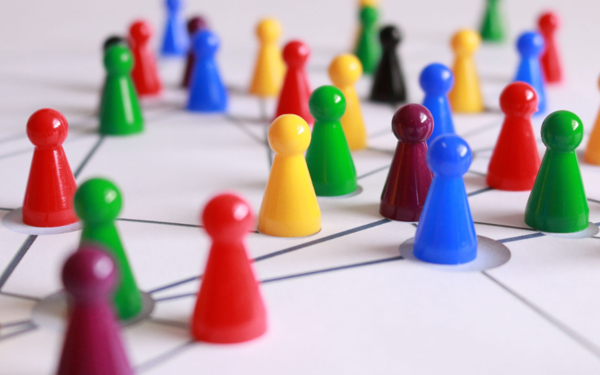Our people: intersectionality month
As a global organisation serving customers and representing colleagues all over the world, equality, diversity, inclusion and belonging, in all their forms, are essential to our future success.

As a global organisation serving customers and representing colleagues all over the world, equality, diversity, inclusion and belonging, in all their forms, are essential to our future success.
We have well-established colleague networks, whose voices and experiences help inform our strategy, policies, product development, marketing and client relationships. Recently our colleague networks have been talking about intersectionality: considering how age, disability, gender, race, sexual orientation and other aspects of identity come together, and the impact this has on us and others. Sharing our experiences with our colleagues helps to educate and inform us all, and is incredibly powerful.
What is intersectionality?
The Cambridge Dictionary defines intersectionality as the way in which different types of discrimination (= unfair treatment because of a person's sex, race, etc.) are linked to and affect each other. The theory was introduced in 1989 by Kimberlé Crenshaw – the idea that when it comes to thinking about how inequalities persists, categories such as gender, race, and class are best understood as overlapping rather than isolated an d distinct.
Intersectionality month
Throughout July, our colleague networks explored intersectionality through talks, panel discussions and workshops. These events were shared globally across our organisation and recorded for anyone who wasn’t able to attend live.
“Intersectionality by its nature is complex and often it can be difficult to understand, which is why the number of events and diverse themes organised by our dedicated staff network members were so brilliant in helping to develop awareness amongst colleagues,” said Serita Bonsignore, our director of equality, diversity, inclusion and belonging.
We considered intersectionality as a concept, through a talk from Dr Kamal MunirReader in Strategy & Policy at the Judge Business School and Race & Inclusion Champion for the University of Cambridge, and in practice through a talk from Pip Gardner, chief executive of The Kite Truston their experiences working with LGBTQ+ youth.
We considered the experiences of our colleagues in nuanced ways by exploring the topics of representation in the workplace, facing personal challenges in the workplace, and social mobility. We also considered what we as individuals can do to support our colleagues through our session on Allyship with Bilal Harry Khan
The series of events have been well received by colleagues. Serita continued: “The sessions helped us all to reflect on ways our own behaviours and actions can support inclusion and belonging.”
What’s next?
Chair of our LGBT+ colleague network, Cecilia Marshall, said: “Intersectionality Month has been a really powerful initiative and we see this as the start of a wider conversation. It is also the beginning of much greater collaboration between our colleague networks, considering the intersection of the identities of our members.”
In September our colleague networks will be hosting an ‘Ask Us Anything’ panel discussion, a safe space for colleagues to ask questions.
It is one of many events our colleagues host throughout the year that are helping us create a workplace environment where everyone thrives and feels a sense of belonging. Find out more about out our approach to equality, diversity, inclusion, and belonging
